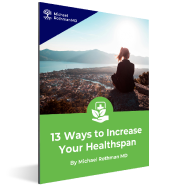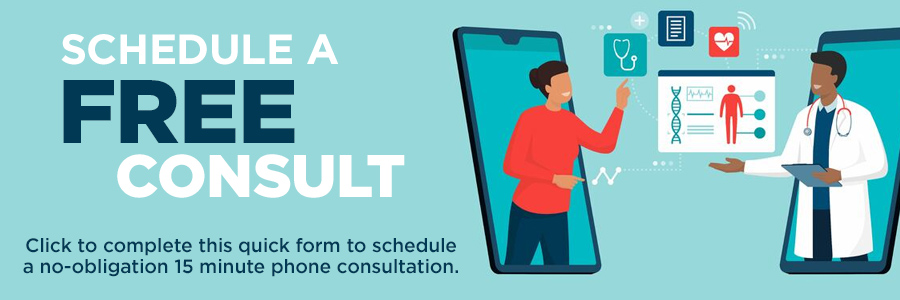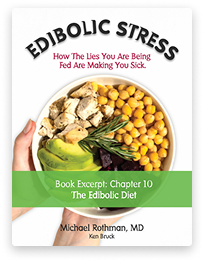You are undoubtedly aware that the foods you choose to buy and consume are paramount to being healthy and disease free. You are probably confused about what is “good” what is “bad” and you may feel that your options are limited. You have, of course, been bombarded with countless opinions and ever conflicting information on what is the “healthy” alternative. All this uncertainty can lead to making poor diet choices, even when you are trying your best to “do the right thing”. In this blog we’ll review a few guidelines and suggestions that can help you make meal selections that will assist you on the road to great health.
Heart Healthy, is NOT Healthy for your Heart or any Other Organ in your Body
The American Heart Association’s definition of a “Heart Healthy” food means that this food is low in saturated fat and low in cholesterol. Sadly, the contents of these items are not “Heart Healthy” as the label claims; in fact eating these foods can be dangerous to your cardiac health and your overall health as well. Most doctors and industry experts suggest that a diet low in saturated fat, low in cholesterol is beneficial. This erroneous notion is perhaps the leading cause of diabetes, high blood pressure, obesity and heart disease ever perpetuated upon the human race. The truth is, while foods under the “smart food” or “heart healthy” label may be low in saturated fat and cholesterol, they are often packed with carbohydrates, sugars, and unhealthy vegetable oils (like soy and canola). Scientific studies in physiology and physiopathology reveal that the major cause of heart disease is inflammation. And this inflammation results from eating foods overloaded with carbohydrates, sugars and unhealthy vegetable oils. Excessive carbohydrates and sugars raise your blood sugar too high leading to elevated insulin levels and diabetes, and eventually high blood pressure and heart disease. Polyunsaturated vegetable oils (like soy and canola) cause an inflammatory reaction that can contribute to literally any disease.
To make matters worse, if you maintain a low saturated fat, “heart healthy diet”, you may chronically suffer from symptoms of fluctuating (low and high) blood sugars known as reactive hypoglycemia. These blood sugar problems can lead to a myriad of symptoms including anxiety, depression, irritable bowel syndrome and many more. Instead of these “heart-healthy” foods, choose wholesome, organic, non processed foods like meat, fish, eggs, poultry and cheese full of saturated fat and cholesterol, which are the real “heart healthy” options.
Beware the “All Natural” Label
When you shop for your food, make sure you aren’t fooled by stickers that indicate the items are “All Natural”. The “Natural” label is not regulated by the government, and many companies, unfortunately, use that loophole to target health conscious customers, such as you, into spending more money for that product. This “Natural” label is intended to mislead you into thinking the label applies to how these foods are grown. This practice is called “Green Washing” and I advise you not to fall into that trap when shopping. Instead of selecting “All Natural” products, look for those specified that they are “Certified Organic”. When a product is considered “Certified Organic”, it means the way the food is grown and raised in a very specific and natural/healthy manner. Unfortunately, studies show most customers tend to choose the “All Natural” label rather than the “Certified Organic” one because it seems more wholesome. As a rule of thumb, “Certified Organic” means that the items are 100% organic, “USDA” designations must contain 90% or more organic contents, “Made with Organic” must contain 70-95% organic byproducts, and “All Natural” has no mandated regulations on its contents.
Most of the Stevia Products on the Market are NOT Natural or Healthy
The use of Stevia as an “all-natural” replacement for sugar and artificial sweeteners is now reaching a fever pitch. As a replacement for sugar, Stevia is advertised as a natural sweetener with 0 calories and 0 grams of sugar. Stevia in its raw and natural form is a healthy and safe alternative to sugar and other artificial sweeteners. However, the vast majority of Stevia is not sold in its natural state. Stevia or “stevia rebaudiana” originally was used in Brazil. The naturally sweet leaves from this plant can be dried and powdered into a pure sweetener that is about 40 times sweeter than sugar. Unfortunately, the raw, unprocessed stevia leaves have a “funny” artificial type of aftertaste which many people find to be unpalatable. Consequently, pure unprocessed green stevia leaves are not widely marketed or easily available. There are dozens of stevia based products on the market and each and every one of them should be used with extreme skepticism and caution. The problem with these stevia based products is that the extraction techniques and chemicals used to “pull” the sweet, active ingredient out of the plant are highly toxic. Do not be fooled by the names of these products or the labels. The only true healthy form of stevia available is the dried and/powdered leaves.
What is so Great about Turkey?
I constantly hear that people choose turkey meat because it is supposedly a healthier alternative to red meat. At breakfast, you may choose turkey bacon over regular bacon. Besides doing your taste buds a disservice, you could be poisoning your body by choosing turkey bacon and turkey hot dogs. There is really nothing intrinsically harmful about beef or pork as long as that meat has been raised in a natural, wholesome manner and has no added preservatives. The problem with too many of the turkey based products is that they do contain nitrates and nitrites. Nitrates, nitrites and other preservatives are almost universally present in bacon, hot dogs, sausages, cold cuts and other meats. These preservatives are used to lengthen the “shelf life” of the product, but have been linked to cancer, inflammation and a myriad of chronic degenerative diseases. When at a neighborhood barbeque, you may also want to think twice about eating a turkey burger. The turkey burger is not necessarily better for you than a regular hamburger. You need to evaluate how the meat you are consuming has been raised, rather than just the type of meat itself. In fact, turkey burgers are quite lean (and relatively tasteless) and choosing a regular hamburger which is full of taste and saturated fat will keep you satisfied and full much longer.
Ditch the Coffee Creamers
With your next cup of coffee, choose regular organic heavy cream rather than a coffee creamer. These fake cream products are full of artificial flavorings, preservatives, and sweeteners. These toxic phony “foods” can cause drastic fluctuations in your blood sugar, wreaking havoc on your autonomic system. Worse yet, many of the artificial flavorings and colorings are pro-inflammatory and can contribute to a long list of chronic degenerative disease states. Real, organic heavy cream is chock full of healthy, delicious fats that will make your coffee taste great and keep your blood sugars stable.
Commercial Salad Dressings and Mayonnaise is a Recipe for Disease
People are constantly choosing salad as a healthy meal, however something as simple as your salad dressing can turn a healthy food into a toxic one. Most commercial salad dressings are full of poison in the form of soy and canola oil. Soy and Canola oil (as well as numerous other vegetable oils) can contribute to inflammation in your body which can cause virtually any chronic, degenerative disease like arthritis, dementia and heart disease (to name a few). Instead of commercial salad dressings, opt for olive oil and vinegar to flavor your salad. Mayonnaise is another common condiment that is mostly made with either soy or canola oil and terrible for your body. Many companies are purposely misleading their customers by promoting that their mayonnaise is “Made with Olive Oil”. The front label will proudly proclaim this fact, and they are not lying, but being extremely deceptive. If you take the time to turn the product around and look at the back label, you will find that one of the primary ingredients is soy or canola oil and olive oil is the last ingredient listed. As long as the product is made with olive oil, regardless of the amount, the market claim is legal.
Deception (and Disease Causing Foods) is Everywhere
The constant running theme is clearly, buyer beware. Or better yet, BE AWARE. Food companies are in business to make a profit, and profits are increased when costs of production and spoiling of products are minimized. Consequently, much of the “food” that you buy in the store is made from cheap (and inferior) quality ingredients with preservatives added to prolong shelf life. Your health is something that is precious and valuable and without your health, your quality of life will be severely compromised. The old saying “You are what you eat”, is as true now as it ever was, and the sheer volume of misinformation is reaching all time highs. At Michael Rothman MD, we have significant experience with people like you who are looking to eat healthy and maintain a fit lifestyle. We can help guide you via Dr. Rothman’s Metabolically Directed Wellness methods and his 28 years of clinical experience. Come in for a consultation with Dr. Rothman by calling, 732-268-7663 and discover a unique road to wellness and how the lies you are being fed are making you sick.












